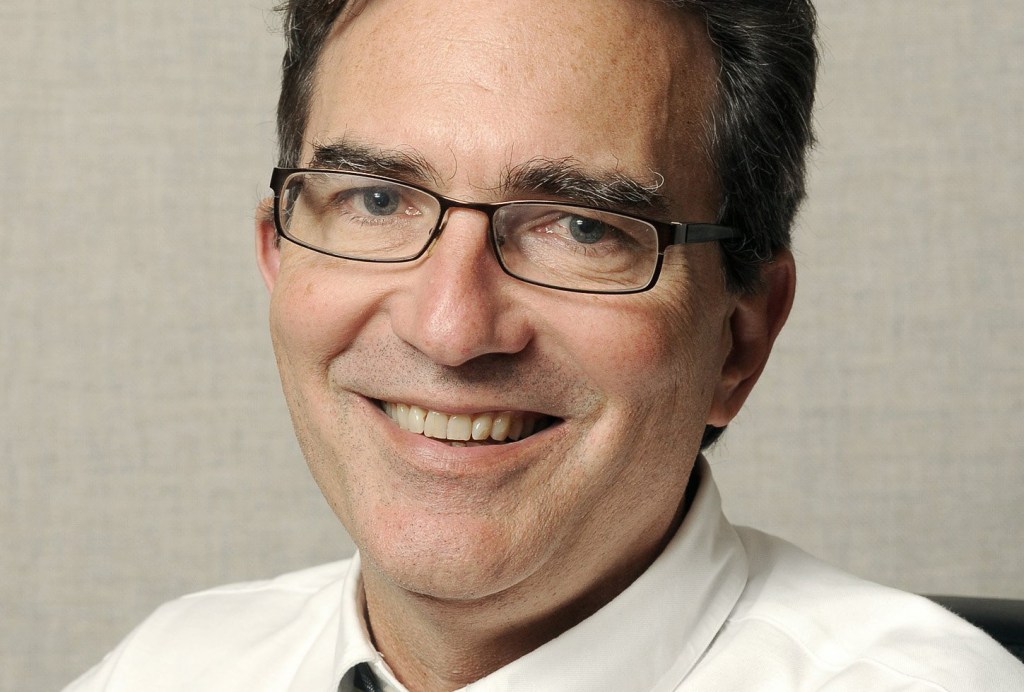Eliot Cutler was treated to some free literature last weekend, paid for by an outside group that praised his positions on gun control and abortion rights. It compared him favorably to his Democratic opponent, Mike Michaud.
Unfortunately, the outside group was the Maine Republican Party, which is trying to get its nominee, incumbent Gov. Paul LePage, re-elected.
I’m not a political scientist, but when your opponent spends money on your behalf, it’s usually not a sign of respect. But that’s how things work when three-way math distorts our winner-take-all elections.
It’s like the old joke about the two explorers who stumble on a tiger. One of the men starts putting on his sneakers.
“Don’t be a fool, you can’t outrun a tiger!” the other says.
“I don’t have to,” the first guy says. “I just have to outrun you.”
In a three-way race, steering voters to another candidate is just as good as getting votes for yourself. As a result, voters have to spend as much time thinking about what other voters might do as they spend thinking about the candidates.
The Republicans must believe that they can help LePage by helping Cutler, because they are doing it every chance they get. (Look at the way the governor laughs and claps when Cutler lands a shot against Michaud in a debate.)
The mailer was targeted to progressive women in the Portland area, and highlighted all three candidates’ positions on gun control and abortion rights. These are not voters who can be expected to flock to LePage, especially not on these issues, but that’s not the point. The mailer was designed to move votes away from Michaud, and it didn’t matter which direction they went.
Trying to split the opposing vote is nothing new in American politics. When John F. Kennedy made his first run for Congress on a crowded primary ballot, he faced a well-known opponent named Joseph Russo. Kennedy’s advisers allegedly found another Joseph Russo and ran him. With the Joseph Russo vote split, Kennedy was sent to Congress, and the rest is history.
More recently and closer to home, the U.S. Chamber of Commerce ran faux-favorable ads for Democratic U.S. Senate candidate Cynthia Dill in 2012, comparing her to independent Angus King and calling her the “real progressive” in the race. The ads were meant to help Republican Charlie Summers, not Dill, by confusing voters who were never going to vote for Summers anyway.
Multi-candidate races raise hard choices for people who want their vote to matter. The last year has been sort of a virtual primary between Michaud and Cutler, which has made discussions of their poll numbers more prominent than discussions of their tax plans.
It doesn’t have to be this way.
Maine could have a system that required the winner in a statewide race to get more than half the vote. Runoff elections, open primaries and ranked-choice voting all let candidates participate regardless of what party they belong to, but don’t reward candidates that have loyal but narrow appeal.
It’s hard to imagine a politician like Paul LePage winning a statewide election if he needed to get the support of more than half the people. But because of our plurality system, it looks like he could win his second straight election.
If there had been an election reform question on the 2012 ballot, we would be looking at a different race today. If there is one on the ballot in 2016, we won’t have to go through this again.
Cutler and Michaud should be making that case instead of letting the Republicans try to play their supporters off each other.
At the WCSH-TV debate, both were asked: If we had ranked-choice voting, who would be your second choice?
“Thank God we don’t,” said Michaud, laughing nervously.
“I’d leave it blank,” said Cutler.
It was a missed opportunity for both candidates. They could have said the obvious: Despite deep differences, they have much more in common with each other’s positions than they do with LePage’s, and the state would be better off if either of them were elected than if LePage were re-elected.
Instead, they fed into the all-or-nothing thinking that makes them vulnerable to tricks like last weekend’s mailer.
Election Day will tell if mischief like this makes any difference. But unless we have electoral reform, this is the kind of politics we should expect.
Greg Kesich is the editorial page editor. He can be contacted at 791-6481 or at:
gkesich@pressherald.com
Twitter: gregkesich
Send questions/comments to the editors.



